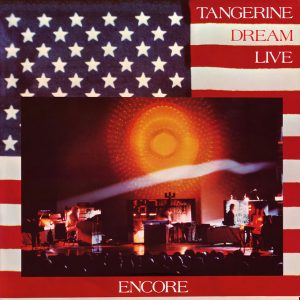During the late 80s, Tangerine Dream’s fortunes briefly appeared to be on the wane. Prime mover Edgar Froese’s first lieutenant of 17 years, Christopher Franke, departed in 1987 after 17 years in harness, while the band’s contract with Jive Electro expired following the release of the opinion-dividing, William Blake-inspired Tyger. Yet the band remained astonishingly prolific, releasing several albums and soundtracks before the decade’s end, including Optical Race, the Miracle Mile score, and Lily On The Beach.
Should Froese have opted to throw in the towel at this juncture, few would have blamed him. After all, regardless of Tyger’s critical wobble, TD’s reputation remained second to none. With almost 20 years’ active service on the clock, Froese’s pioneering electronic outfit had amassed a leviathan of a back catalog which included groundbreaking releases, among them proto-ambient masterpiece Zeit and revered, Virgin-released highlights Phaedra, Rubycon, and Force Majeure, while his band’s 80s albums had continually embraced changing trends and advances in digital technology.
To his credit, however, Froese persevered, signing with ex-bandmate Peter Baumann’s LA-based Private Music imprint and recording 1988’s Optical Race as a duo with his talented new second-in-command, Paul Haslinger. Again keeping up with technological advances, the tracks were programmed on a newly acquired Atari ST computer and, while not a commercial success, the LP featured some of Tangerine Dream’s most accessible music to date, including the North African-tinged “Marakesh” and the exhilarating, motorik title cut.
Alongside the recently recruited Ralf Wadephul, Froese and Haslinger promoted Optical Race with an extensive U.S. tour in the fall of ’88, yet Wadephul’s tenure proved brief and TD reverted to a nucleus of Froese and Haslinger for their second Private Music studio set, October 1989’s Lily On The Beach. Superficially a logical extension of the shiny Optical Race, the record was again stuffed with sleek, electro-pop workouts such as “Paradise Cove” and “Gecko,” though “Desert Drive’” spacey BPMs and neat, house-inspired piano figures suggested that Froese and Haslinger remained acutely aware of developments in contemporary club culture.
Unlike Optical Race, however, Lily On The Beach tempered the band’s increasing reliance upon digitization with some decisive organic textures. Devotees were heartened to hear the return of Froese’s soaring lead guitar on “Too Hot For My Chinchilla,” while his son Jerome (shortly to sign up full-time with his dad) stepped in to play a similar role on the classy “Radio City.” Haslinger’s rippling piano, meanwhile, dominated the beautiful, sparse “Twenty-Nine Palms,” and the shape-shifting finale of “Long Island Sunset” was buoyed by sax and flute from guesting jazz fusionist Hubert Waldner.
Frustratingly for fans, Froese and co-opted not to tour during ’89, and selections from Lily On The Beach were thus premiered during the band’s one-off show at Berlin’s Werner-Seelenbinder Halle in February 1990. Behind the scenes, however, they remained feverishly active, working up selections for Destination Berlin: the soundtrack for the spectacular film of the same name, which captured 360-degree footage of the divided city in the period immediately prior to the fall of the Berlin Wall.




